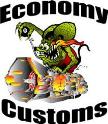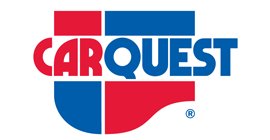Archive for October 2020Poor Reflections (Door Mirror Problems)Posted October 25, 2020 10:58 AMMirror, mirror on the door, why is my vision there so poor? Well, you could have a broken outside rearview mirror that's disabled your blind spot vision there and endangering your ability to see some of the traffic around you. Outside rearview (or door) mirrors are important safety devices that are thoughtfully designed to help drivers see. And there are a variety of ways those door mirrors can develop problems. One is when the glass is broken in them. Sometimes it's caused by an accident or vandalism. But without your ability to see in that mirror, you could be driving blind, unable to see drivers approaching from the rear in adjacent lanes. Sometimes it's as simple as having the glass replaced. You'll greatly enhance your safety if you do. Then there's the door mirror that you can't adjust. First, let's look at a common scenario in later models, the power mirror. They're great when they're working, awful when they're not. Sometimes the motor fails, the switch goes bad or the wiring fails to deliver power. Or how about the manually-adjusted door mirror that has either frozen up or just flops around? In this case, the mechanism has corroded, jammed up or a part has broken. In both power- and manually-adjusted door mirrors, it sometimes can be hard to keep them in the right position. Plus, every time there's a driver change, it may be hard to adjust those broken mechanisms by hand. Finally, heated door mirrors can be extraordinarily useful in eliminating fogging or icing up in certain weather conditions. But those heating elements can fail, switches can break or wiring can go bad. Suddenly your fogged over, frozen mirrors aren't doing you any good at all. Good drivers use those outside rearview mirrors all the time. They should be working the way designers intended, to provide the driver with vital traffic position information. That's the kind of safety device you should get fixed or replaced sooner rather than later. It's well worth it if you prevent even one little accident. Economy Transmission and Auto Repair Cool Running (Water Pump)Posted October 18, 2020 12:30 PMYour vehicle is like you in a way. When it gets hot, it needs to be cooled down. And one of the key parts to keeping it cool is the water pump. Now, that's a bit of a misnomer. It IS a pump, but it's pumping coolant, not pure water. Cooling off your engine is vital since it builds up heat when it creates power by burning fuel. Your water pump acts as a way to recirculate that coolant. It goes through a series of tubes and hoses through the engine where it picks up heat, then is sent off to the radiator to get rid of that heat. Cooled off, the coolant is recycled through the water pump to start the journey again. The water pump works by taking mechanical power from the engine, usually from a belt. Obviously, that belt has to be in good condition and adjusted properly or else the water pump won't be able to do its job. Here are some things to look for that will signal problems with your water pump. If your heat gauge is erratic or showing a much higher than normal temperature, that could be a sign of trouble. Another is if you hear a whine under the hood. And if that gets louder when you go faster, get it checked right away. You may see steam coming out from under the hood or coolant may be leaking. These signs signal that it's time for you to have a technician check to see where the problem is. Some water pumps are powered by a timing belt. If your vehicle has that design and your timing belt is due for replacement, sometimes it's a good idea to replace the water pump too, even if it's working properly. That's because the labor to replace the timing belt can be expensive and it may be wise to proactively take care of the water pump while it's disassembled. Your service advisor will explain the options available and offer the best path to keeping your water pump doing its job. Your engine's life depends on it. Economy Transmission and Auto Repair Your Vehicle is Talking to YOU (Service Warning Signs)Posted October 11, 2020 12:09 PMYour vehicle may be like that famous battery bunny, the one that just keeps going and going. But while it may seem sometimes like you never need to take your vehicle in to be worked on, there are some things you should keep your eyes, ears and nose out for. They are warning you about something that needs attention at your vehicle service facility.
An old 80s TV show called "Knight Rider" featured a talking car. You already have a vehicle that's telling you things all the time. Give it a listen and it will keep you going safely down the road for many years to come. Economy Transmission and Auto Repair The Right Oil for the Season (Engine Oil Viscosity)Posted October 4, 2020 10:39 AMAs the temperatures plunge, certain types of engine oil may not flow as easily as they did when it was warmer. Makes sense, doesn't it? Just like molasses gets thicker as the temperature goes down, engine oil does the same thing. So, maybe you're wondering if you have to change your oil as the seasons change so it's just the right thickness to lubricate your engine parts. How well engine oil flows is called its viscosity. There are different types of oil—some that have just one viscosity and others called "multigrade" oils. Here's the difference. A single viscosity oil will flow better when it's hot but not as well when it's cold. A multigrade oil is engineered so that its flow properties at cold temperatures are different than they are at warm temperatures. In other words, a multigrade oil can start out in colder temperatures acting like a thinner oil and then behave like a thicker oil when it's warm. That's a pretty cool trick and it's why multigrade engine oil is used in nearly all vehicles. Your vehicle's manufacturer has the correct viscosity of oil for your particular model included in the owner's manual. Another choice you have to make when it comes to engine oil is whether you use conventional oil, synthetic oil or a blend of the two. Synthetic oils have some advantages over conventional, such as resisting breakdown better and withstanding higher temperatures. Check with your service advisor to see which viscosity and type of oil is recommended for your vehicle. It's important that in cold weather, the oil flows through your engine at the right thickness so that parts are being properly lubricated. That will make sure you'll get good fuel economy and performance, no matter what the temperature is.
| ||
SearchArchiveFebruary 2010 (2)March 2010 (4) April 2010 (3) May 2010 (4) June 2010 (4) July 2010 (4) August 2010 (4) September 2010 (5) October 2010 (1) November 2010 (5) December 2010 (5) January 2011 (4) February 2011 (4) March 2011 (5) April 2011 (4) May 2011 (4) June 2011 (5) July 2011 (4) August 2011 (21) September 2011 (4) October 2011 (4) November 2011 (5) December 2011 (4) January 2012 (5) February 2012 (4) March 2012 (4) April 2012 (4) May 2012 (2) June 2012 (3) July 2012 (1) August 2012 (1) November 2012 (1) December 2012 (2) March 2013 (1) April 2013 (3) May 2013 (2) October 2013 (5) November 2013 (2) January 2014 (2) February 2014 (3) March 2014 (2) July 2014 (3) August 2014 (7) September 2014 (4) October 2014 (5) November 2014 (4) December 2014 (4) January 2015 (5) February 2015 (4) March 2015 (4) April 2015 (5) May 2015 (2) June 2015 (6) July 2015 (2) September 2015 (2) October 2015 (5) November 2015 (3) December 2015 (3) February 2016 (1) March 2016 (5) April 2016 (4) May 2016 (5) June 2016 (4) July 2016 (5) August 2016 (4) September 2016 (4) October 2016 (5) November 2016 (4) December 2016 (4) January 2017 (5) February 2017 (4) March 2017 (4) April 2017 (4) May 2017 (4) June 2017 (5) July 2017 (5) August 2017 (4) September 2017 (3) October 2017 (5) November 2017 (4) December 2017 (3) January 2018 (5) February 2018 (4) March 2018 (4) April 2018 (5) May 2018 (4) June 2018 (4) July 2018 (5) August 2018 (4) September 2018 (5) October 2018 (4) November 2018 (4) December 2018 (5) January 2019 (4) March 2019 (4) May 2019 (2) June 2019 (5) July 2019 (2) August 2019 (2) September 2019 (4) October 2019 (5) November 2019 (4) December 2019 (5) January 2020 (5) February 2020 (4) March 2020 (5) April 2020 (1) May 2020 (2) July 2020 (2) August 2020 (5) September 2020 (4) October 2020 (4) November 2020 (5) December 2020 (4) January 2021 (6) February 2021 (4) March 2021 (4) April 2021 (4) May 2021 (5) June 2021 (4) July 2021 (4) August 2021 (5) September 2021 (4) October 2021 (5) November 2021 (4) December 2021 (4) January 2022 (6) February 2022 (4) March 2022 (4) April 2022 (4) May 2022 (5) June 2022 (4) July 2022 (3) September 2022 (4) October 2022 (5) November 2022 (4) December 2022 (4) January 2023 (5) February 2023 (4) March 2023 (4) April 2023 (5) May 2023 (4) June 2023 (4) July 2023 (5) August 2023 (4) September 2023 (4) October 2023 (1) January 2024 (1) February 2024 (4) March 2024 (1) | CategoriesAir Conditioning (17)Alignment (17)Alternator (6)Auto Safety (6)Automotive News (8)Battery (20)Brake Service (4)Brakes (22)Cabin Air Filter (8)Check Engine Light (6)Cooling System (19)Customer Detective Work (1)Dashboard (3)Diagnostics (5)Diesel Maintenance (1)Differential Service (4)Drive Train (9)Emergency Items (1)Engine Air Filter (2)Exhaust (12)Fluids (17)Fuel Economy (10)Fuel Pump (1)Fuel Saving Tip: Slow Down (2)Fuel System (47)Headlamps (6)Inspection (11)Keys to a long lasting vehicle (4)Maintenance (53)Monitoring System (3)Oil Change (7)Older Vehicles (4)Parts (7)PCV Valve (2)Safe Driving (1)Safety (6)Serpentine Belt (6)Service Intervals (9)Service Standards (13)Shocks & Struts (9)Shocks and Struts (1)Spark Plugs (2)Steering (15)Suspension (3)Timing Belt (6)Tire Rotation and Balancing (3)Tires (10)Tires and Wheels (40)TPMS (3)Transfer Case Service (1)Transmission (11)Trip Inspection (4)Warranty (2)Water Pump (1)What Customers Should Know (81)Wheel Bearings (1)Windshield Wipers (9)Winter Prep (7)Winter Tires (1) | |








